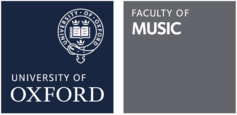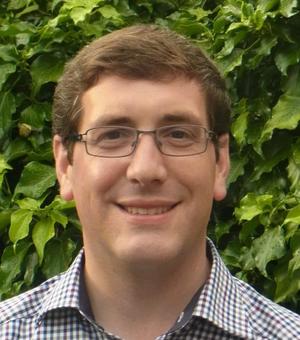Professor Christian Leitmeir
Christian Thomas Leitmeir grew up in Donauwörth, Southern Germany. From 1995 he read Musicology, Comparative Literature, Philosophy and Theology at the University of Munich. In 1999 he completed his MMus degree in Musicology at King’s College London and in 2003 was awarded a DPhil from the Karl-Eberhards-Universität Tübingen (2003). After a Long-Term Frances A. Yates Research Fellowship at the Warburg Institute (London, 2003–2006), he taught at Bangor University (2007-2015), before joining the University of Oxford in 2015.
He is a devoted palaeographer and critical editor. Alongside, he pursues research into other areas, especially German Romantic opera, music around 1900 (with a focus on Richard Strauss) and the history of musicology. He frequently engages in interdisciplinary research, reaching out especially to theology and art history.
He serves as co-editor to Plainsong & Medieval Music, reviews editor for Archa Verbi: Yearbook for the Study of Medieval Theology and on the editorial board of the Journal of the Alamire Foundation and Music Theory & Analysis. In 2013 he was elected into the Academy of Europe (Academia Europaea).
At the Faculty of Music, Christian mainly teaches on the history of music from the Middle Ages and the early modern period, including palaeography and music philology. His tutorial teaching covers these subject areas, but additionally extends to other periods of music history.
A full listed of publications can be found on Christian Leitmeir’s academia webpage.
Monographs and Edited books
Jacobus de Kerle (1531/32-1591): Komponieren im Brennpunkt von Kirche und Kunst, Centre d’Études Supérieures de la Renaissance. RICERCAR, Collection Épitome musical (Turnhout, 2009), ISBN 978–2–503–51959–3, xii + 1131 pp.
The Production and Reading of Music Sources: Mise-en-page in manuscripts and printed books containing polyphonic music, 1480-1530, co-edited with Thomas Schmidt (Turnhout, 2018), ISBN 978-2503579610, xl + 541 pp.
Editions
Johannes Stadlmayr, Apparatus musicus (Innsbruck 1654), online edition (2004) at http://www.musikland-tirol.at/html/musikedition/musikedition.html,
edited in commission of the Institut für Tiroler Musikforschung by Thomas Engel (transcription) and Christian Thomas Leitmeir (reconstruction of missing parts)
Teodoro Riccio, Liber primus missarum (Königsberg, 1579), Monumenta Musicae in Polonia (Warsaw, 2019), in print.
Recent journal articles and book chapters
‘Kardinal – Konfessor –Komponist: Otto von Waldburg, Pedro de Soto und Jacobus de Kerle im Dienst der katholischen Reform‘, Otto Truchsess von Waldburg (1514–1573), edited by Veronika Lukas, Julius Oswald SJ and Claudia Wiener, Jesuitica, 21 (2016) = Jahrbuch des Historischen Vereins Dillingen (2015), 173-198.
‘[Richard Strauss:] Die Orchesterlieder’, Richard Strauss Handbuch, edited by Walter Werbeck (Stuttgart, 2014), 348-361.
‘Totengedenken und Wohltat: Ignaz Lachners Prolog zur Vorstellung zu Gunsten der Hinterbliebenen des weiland Kapellmeisters Albert Lortzing’, Lortzing und Leipzig: Musikleben zwischen Öffentlichkeit, Bürgerlichkeit und Privatheit. …, Hochschule für Musik und Theater ‘Felix Mendelssohn Bartholdy’ Leipzig: Schriften, 9, edited by Thomas Schipperges (Hildesheim-Zürich-New York, 2015), 397-439, open access publication available here.
‘Words for music, Words about Music: Salomon Frencel von Friedenthal’s Epigrams as Sources for Music History’, Ars musica and its contexts in medieval and early modern culture, edited by Paweł Gancarczyk (Warsaw, 2016), 367-394.
‘Dominicans and Polyphony: Re-Appraisal of a Strained Relationship’, Making and breaking the rules: Discussions, implementation and consequences of Dominican legislation, edited by Cornelia Linde (Oxford, 2018), 59-88.
‘Made to Measure: Compositional Challenges behind the Penitential Psalm Codices from the Munich Court’, The Production and Reading of Music Sources: Mise-en-page in manuscripts and printed books containing polyphonic music, 1480 – 1530, edited by Thomas Schmidt and Christian Thomas Leitmeir (Turnhout, 2018), 103-115 and Appendix Plates 2.1-2.4.
‘Beyond the confessionalisation paradigm: The motet as denominational practice in the late 16th century’, Mapping the Motet in the post-Tridentine Era, edited by Esperanza Rodríguez-García and Daniele V. Filippi (Abingdon and New York, 2018), 156-195.
‘Following the Scent of the Huntsmen’s Mass: The tradition and legacy of Lasso’s Missa Iager’, Revue belge de musicologie, 72 (2018), 53-83.
‘Verschollene, verborgene und verstörende Spuren Mozarts im Schaffen von Richard Strauss’, Musik in Bayern, 82 (2019), in print.
Christian Leitmeir’s research evolves primarily around medieval music theory and early modern music in Continental Europe (with a regional emphasis on Central Eastern Europe).




